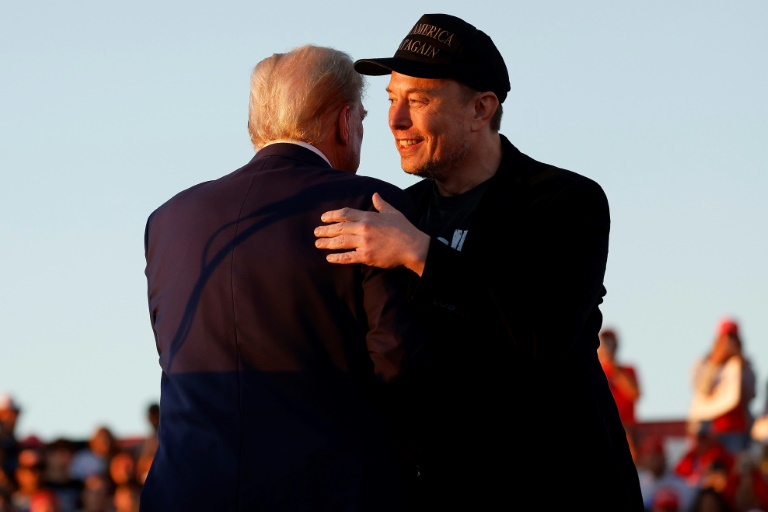What Is Elon Musk's Petition, Why Is He Giving $1 Million Dollars Away And Is This Legal: Everything You Should Know

Today at 09:28 AM
Elon Musk, the billionaire entrepreneur behind Tesla and SpaceX, has sparked controversy with his latest offer of giving away $1 million a day to individuals who sign a political petition supporting the U.S. Constitution's First and Second Amendments. As the 2024 U.S. presidential election approaches, this financial incentive has raised questions about its legality and ethical implications. Below, we explore Musk's petition, why he is offering such a significant sum of money, and whether it stands on solid legal ground.
What Is Elon Musk's Petition?
Elon Musk's petition is part of a broader campaign led by his America PAC. This political action committee has been actively supporting the re-election of former President Donald Trump. According to NBC News, Musk's petition focuses on garnering support for the First Amendment, which protects free speech, and the Second Amendment, which guarantees the right to bear arms. The PAC has been touring key battleground states like Pennsylvania, encouraging voters to register and sign the petition in the lead-up to the November 5th election.
As a part of this initiative, Musk has pledged to give away $1 million every day to randomly selected individuals who sign the petition to increase voter registration and participation in crucial swing states. This offer was revealed during a town hall event in Harrisburg, Pennsylvania, where Musk gave a local participant the first $1 million cheque. According to HuffPost, Musk emphasised that the aim is to get between one and two million voters to sign the petition in battleground states to send a strong message to politicians ahead of the election.
Why Is Musk Giving Away $1 Million a Day?
Musk's financial giveaway is part of his larger effort to increase voter engagement and support for Trump in critical swing states. While the petition itself focuses on constitutional amendments, the timing of the offer and its connection to voter registration has raised suspicions that the initiative is designed to sway the election in Trump's favour. Musk has been an outspoken supporter of Trump and has stated that the outcome of the 2024 election will determine the "fate of America" and "the fate of Western civilisation".
In addition to the $1 million-a-day offer, Musk's America PAC has been running digital ads and posting on X (formerly Twitter), a platform Musk owns, encouraging people to sign the petition and register to vote. The PAC had previously offered smaller cash incentives, starting at $47, before increasing the amount to $100 for each referral to sign the petition. Musk's goal is to encourage more voter participation and draw attention to the petition, which he claims the mainstream media is ignoring.
How to Sign Up for the Petition
Signing up for Elon Musk's petition is straightforward. According to NBC News, individuals in key battleground states like Pennsylvania can participate by visiting the America PAC's official website. To qualify for the $1 million giveaway, participants must be registered voters and sign the petition supporting the First and Second Amendments. The PAC has also encouraged participants to refer others to sign, with additional cash rewards offered for successful referrals.
Once the petition is signed, individuals are automatically entered into the daily draw for the $1 million cheque. Participants can refer to the petition's website for detailed rules on eligibility and how winners will be selected and notified. The campaign will run until the November 5th election deadline, giving voters several more days to participate and potentially win the substantial cash prize.
The Legal Controversy: Is This Giveaway Legal?
The $1 million-a-day giveaway has raised significant legal and ethical concerns. According to U.S. election law, offering financial incentives to register or vote is illegal. However, Musk's petition is framed as promoting constitutional rights rather than a direct voter registration drive, creating a grey area. Legal experts are divided on whether the offer violates campaign finance laws.
According to HuffPost, Pennsylvania Governor Josh Shapiro has expressed concern about the legality of Musk's offer, describing the initiative as "deeply concerning" and raising questions about how money is used in the election. Shapiro noted that while Musk has the right to support his political views, the flow of "dark money" into Pennsylvania and the connection to voter registration is troubling.
Brendan Fischer, a campaign finance lawyer, argued that the giveaway "approaches a legal boundary" because it limits eligibility to registered voters. Fischer explained that while paying individuals to sign a petition isn't inherently illegal, restricting the prize to registered voters could be an indirect method of paying people to register to vote, which could be problematic under U.S. law (Associated Press).
Similarly, Rick Hasen, a political science professor at UCLA Law School, emphasised that the legality of Musk's offer is murky. "If all he was doing was paying people to sign the petition, that might be a waste of money. But there's nothing illegal about it. The problem is that the only people eligible to participate in this giveaway are the people who are registered to vote. And that makes it illegal," Hasen explained in a recent interview with NBC News.
Is Musk's Giveaway Likely to Face Legal Action?
So far, no formal legal action has been taken against Musk or his PAC. However, election law experts have noted that the giveaway could face scrutiny from state and federal officials as the election draws closer. Michael Kang, an election law professor at Northwestern University, pointed out that while the petition does not directly violate campaign finance laws, the proximity to the election and the fact that only registered voters can participate create legal risks. "It's not quite the same as paying someone to vote, but you're getting close enough that we worry about its legality," Kang told HuffPost.
